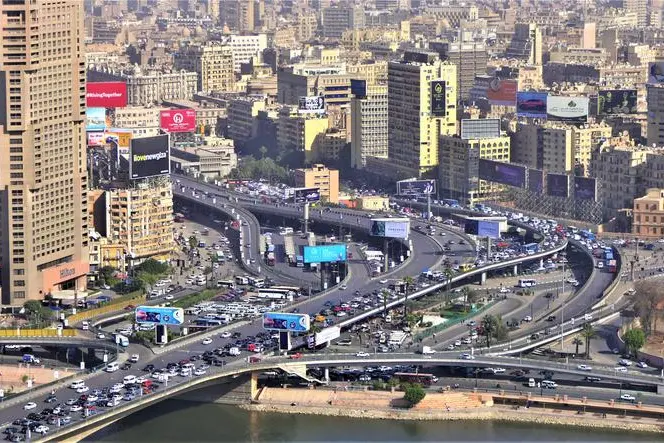PHOTO
Cairo – The Minister of International Cooperation, Rania El-Mashat, stated that the efforts exerted by the government over the last five years succeeded in developing the country’s infrastructure.
The country's ongoing international cooperation portfolio encompasses 143 projects to finance different sectors in the infrastructure sector, with development financing that amounts to $18 billion, representing over 70% of the total portfolio to implement projects across sectors of renewable energy, water, health, transportation, and industry in a way that enhances local communities’ sustainability, El-Mashat added in a press release.
Prime Minister Mostafa Madbouly, along with his accompanying delegation from the Egyptian government, including El-Mashat, and Minister of Planning and Economic Development, Hala El-Saeed, participated in a roundtable discussion held by the Movement of the Enterprises of France (MEDEF) and the Egyptian-French Business Council, covering major national projects implemented in the field of infrastructure.
El-Mashat further elaborated that the Ministry of International Cooperation manages Egypt’s development cooperation portfolio, which amounts to $25 billion, and encompasses 377 projects across various sectors. This includes $18 billion directed to integrating with the government of Egypt’s efforts in developing infrastructure, and answering to SDG 9: Industry, Innovation and Infrastructure which includes 36 projects with total financing of $5.7 billion, making up 22.3% of ODA financing.
This is in addition to 34 projects within the Ministry of International Cooperation’s portfolio answering SDG 7: Affordable and Clean Energy with a total of $5.9 billion, 43 projects worth $4.9 billion on SDG 6; and 30 projects for SDG 11: Sustainable Cities and Communities, worth $1.5 billion.
The Minister further pointed out Egypt’s keenness on effectively engaging the private sector as a key partner in achieving sustainable and inclusive development, as the government has made strides in enhancing the public-private dialogue. There are currently more than 1,000 private sector companies and nearly 2 million Egyptian workers working on national megaprojects that are contributing to a new chapter in Egypt’s economic progress across various sectors, including transport, housing, electricity, and petroleum. In that same vein, 31% of the development financing from bilateral and multilateral development partners in 2020 were directed to developing the private sector.
El-Mashat also tackled the government's efforts in developing sectors of renewable energy and electricity, which accordingly enhanced the private sector’s engagement in development, and contributed to consolidating international partnerships.
One notable example El-Mashat referred to was building the world’s largest solar array at the Benban Solar Park in the Governorate of Aswan, with the participation of more than 10,000 workers and 13 private sector companies, to produce 1.6 GW Egypt’s flagship solar park which will increase Egypt’s renewable energy mix and promote private-public cooperation in heavy industries.
The Minister referred to the Government of Egypt’s efforts in developing sustainable and smart infrastructure in the transport sector, through carrying out reforms and implementing projects; elaborating that in 2020 the Ministry of International Cooperation secured development financing for the transportation sector that amounted to $1.7 billion, pushing forward achieving a sustainable transportation sector. She further noted that international partners support the country's efforts across different areas of the transport sector, including the expansion of the metro lines, the development of railways, and the inauguration of dry ports.
El-Mashat stated that sectors of water and sanitation, and housing, were among the most developed sectors over the past years, according to the government’s efforts to diversify water resources, maintain resource sustainability and improve sector management. She noted that among the vital projects that development partners have contributed to financing was Bahr El-Baqar Water Drainage System, which holds the Guinness World Record as the largest station in the world, with a capacity of 5.6 million cubic metres per day. This is in addition to the water desalination projects implemented in East Port Said.
This comes within the framework of the Ministry of International Cooperation’s Presidential Decree No. 303 of 2004, which defines the objectives and tasks of the ministry.
All Rights Reserved - Mubasher Info © 2005 - 2021 Provided by SyndiGate Media Inc. (Syndigate.info).





















